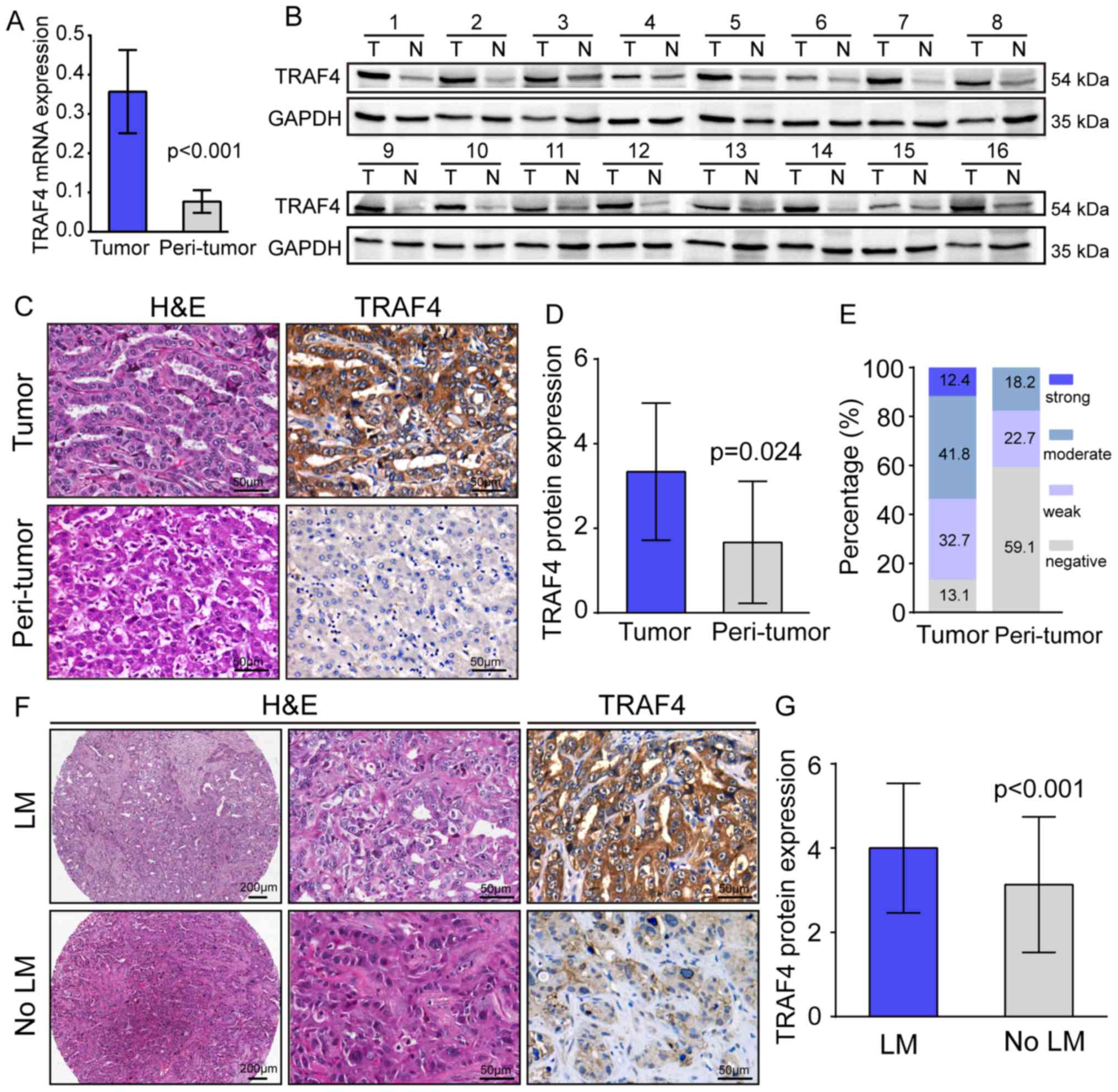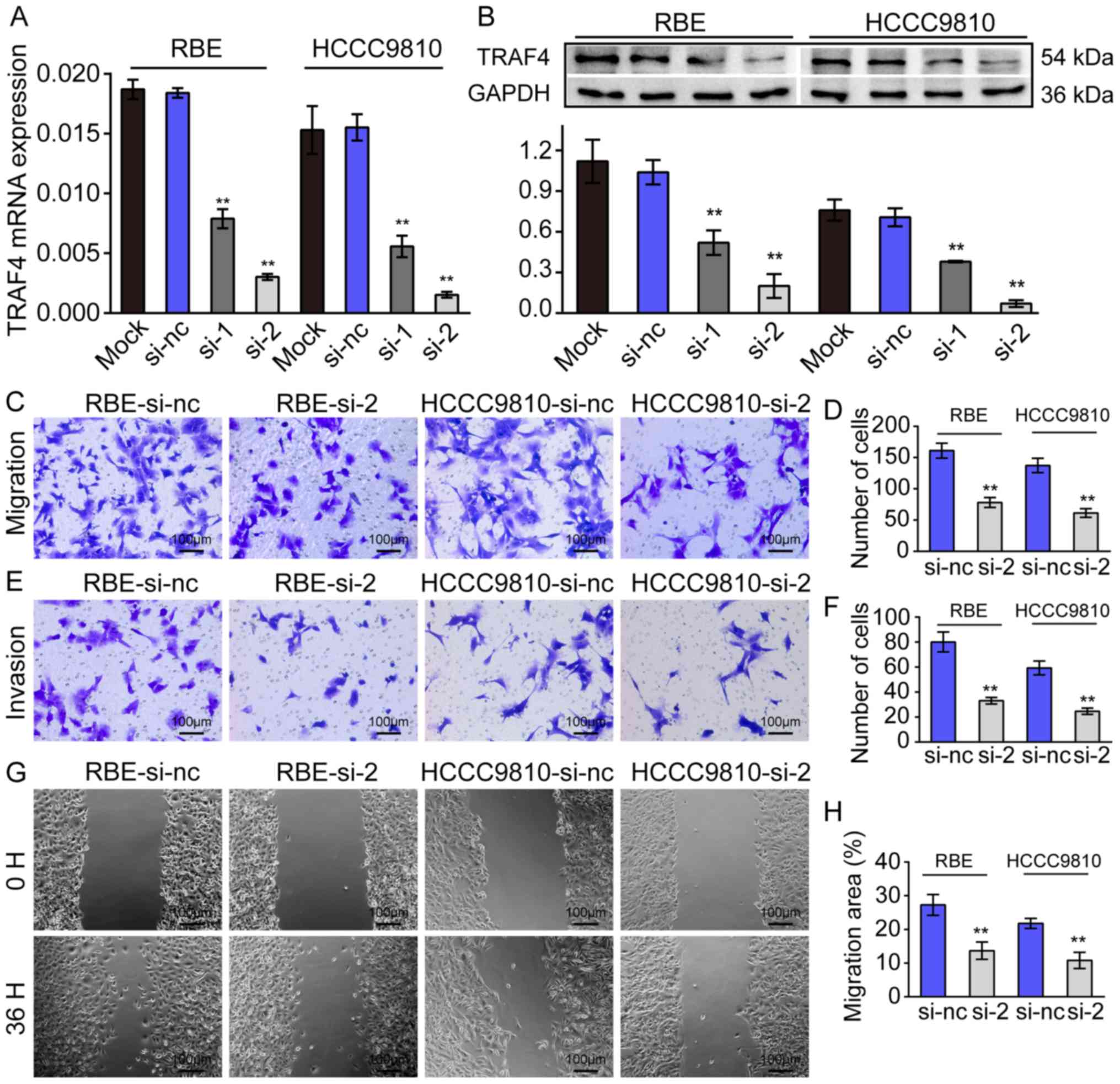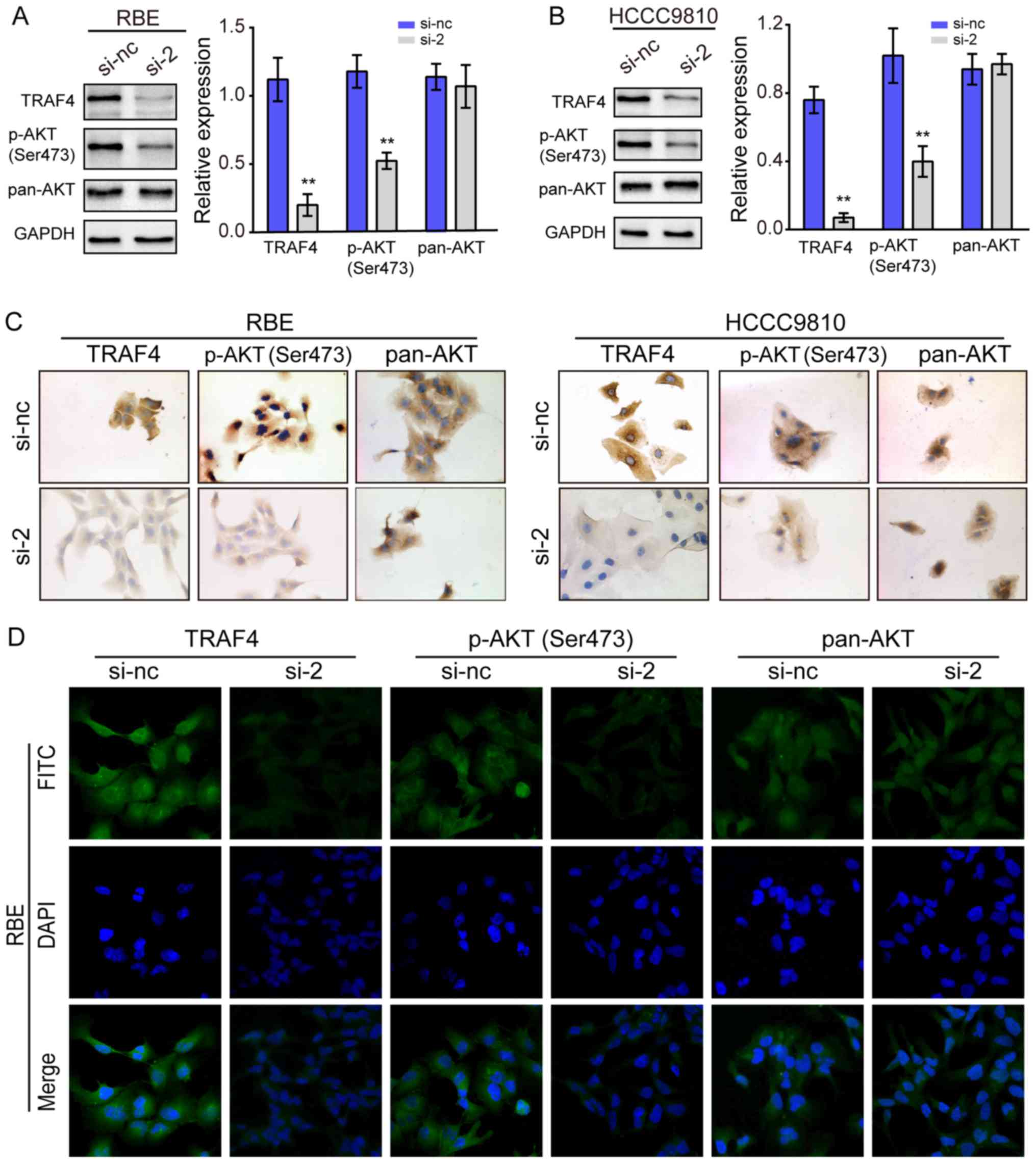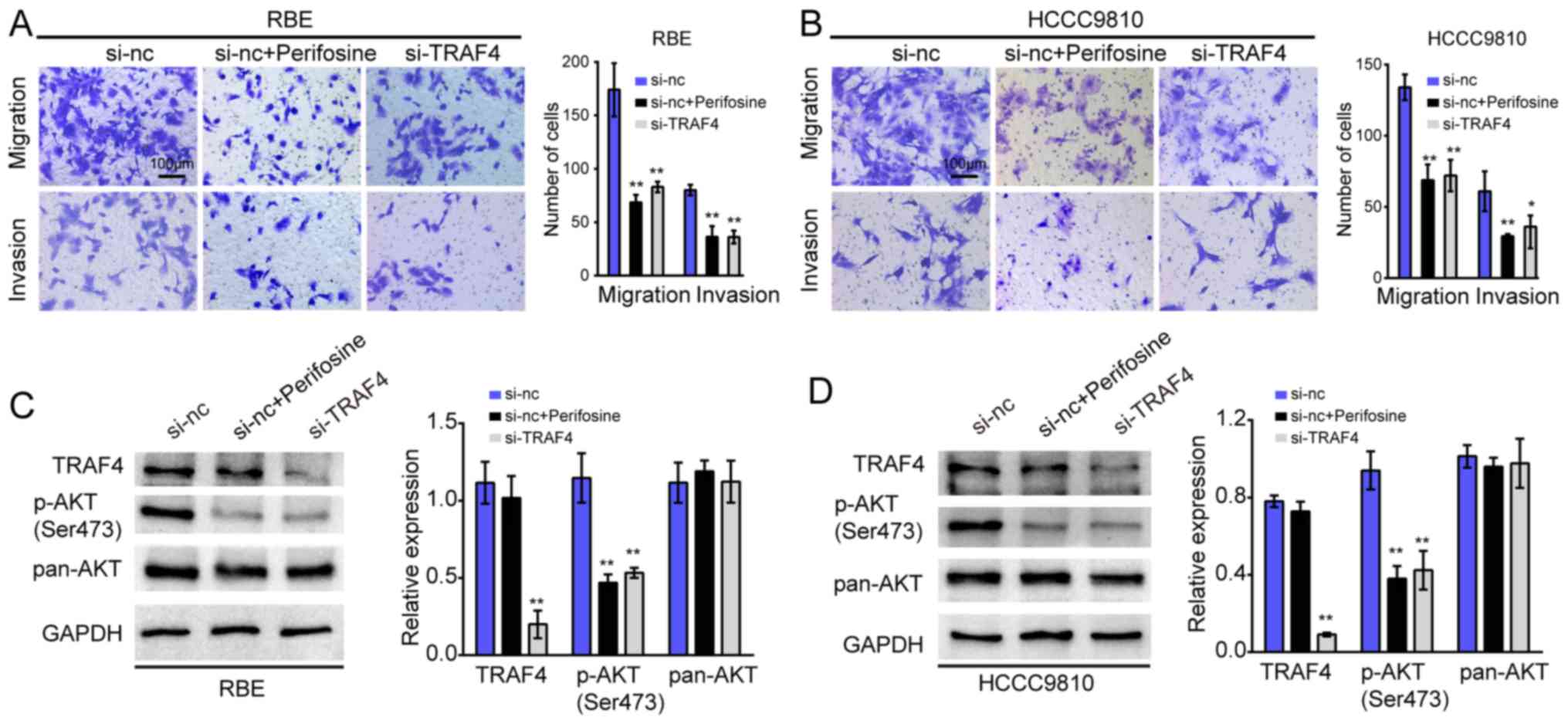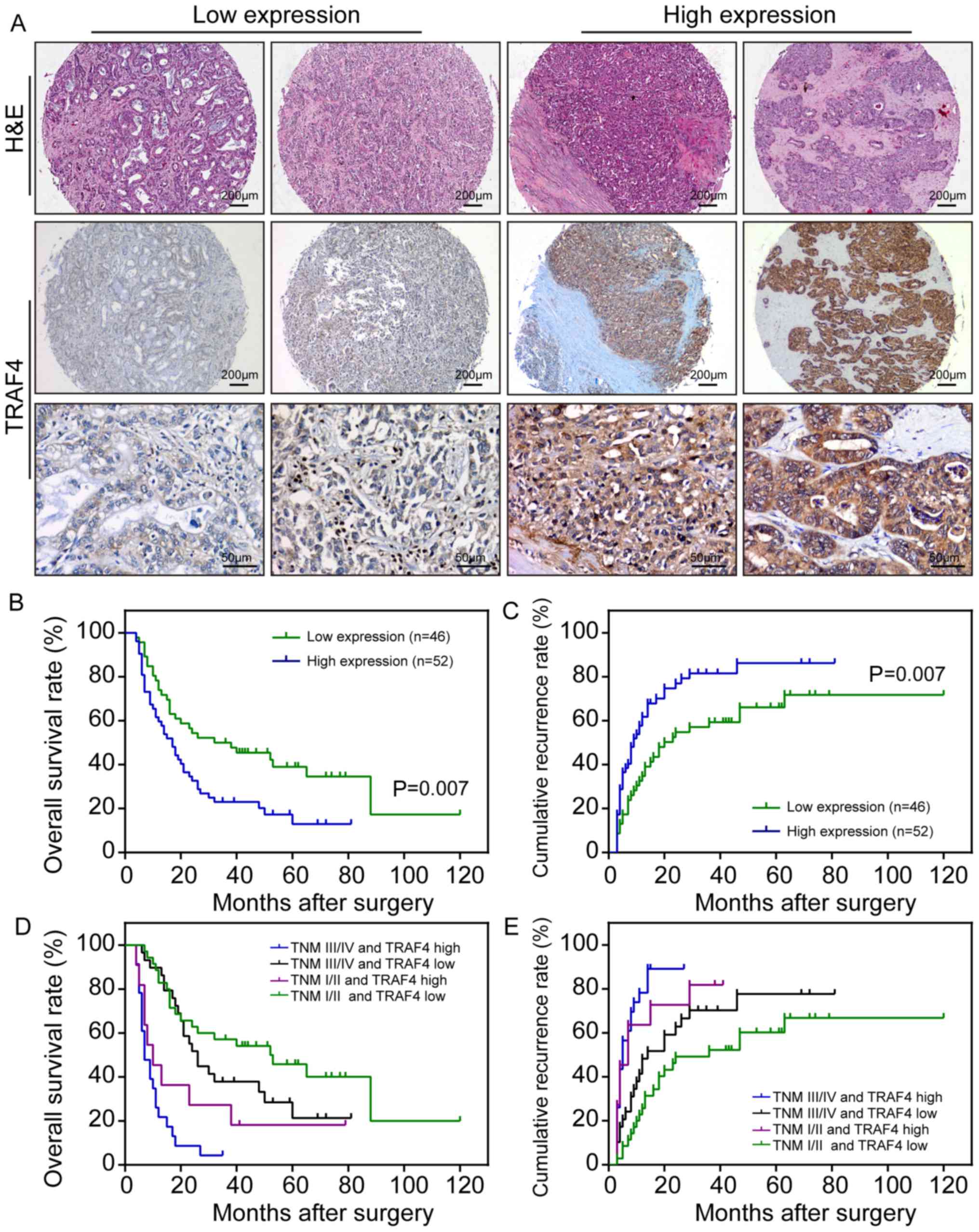|
1
|
Bagante F, Spolverato G, Weiss M,
Alexandrescu S, Marques HP, Aldrighetti L, Maithel SK, Pulitano C,
Bauer TW, Shen F, et al: Impact of morphological status on
long-term outcome among patients undergoing liver surgery for
intrahepatic cholangiocarcinoma. Ann Surg Oncol. 24:2491–2501.
2017. View Article : Google Scholar : PubMed/NCBI
|
|
2
|
Zhang H, Yang T, Wu M and Shen F:
Intrahepatic cholangiocarcinoma: Epidemiology, risk factors,
diagnosis and surgical management. Cancer Lett. 379:198–205. 2016.
View Article : Google Scholar
|
|
3
|
Rahnemai-Azar AA, Weisbrod AB, Dillhoff M,
Schmidt C and Pawlik TM: Intrahepatic cholangiocarcinoma: Current
management and emerging therapies. Expert Rev Gastroenterol
Hepatol. 11:439–449. 2017. View Article : Google Scholar : PubMed/NCBI
|
|
4
|
Yang LX, Gao Q, Shi JY, Wang ZC, Zhang Y,
Gao PT, Wang XY, Shi YH, Ke AW, Shi GM, et al: Mitogen-activated
protein kinase kinase kinase 4 deficiency in intrahepatic
cholangiocarcinoma leads to invasive growth and
epithelial-mesenchymal transition. Hepatology. 62:1804–1816. 2015.
View Article : Google Scholar : PubMed/NCBI
|
|
5
|
Saha SK, Gordan JD, Kleinstiver BP, Vu P,
Najem MS, Yeo JC, Shi L, Kato Y, Levin RS, Webber JT, et al:
Isocitrate dehydrogenase mutations confer dasatinib
hypersensitivity and SRC dependence in intrahepatic
cholangiocarcinoma. Cancer Discov. 6:727–739. 2016. View Article : Google Scholar : PubMed/NCBI
|
|
6
|
Terashita K, Chuma M, Hatanaka Y, Hatanaka
K, Mitsuhashi T, Yokoo H, Ohmura T, Ishizu H, Muraoka S, Nagasaka
A, et al: ZEB1 expression is associated with prognosis of
intrahepatic cholangiocarcinoma. J Clin Pathol. 69:593–599. 2016.
View Article : Google Scholar
|
|
7
|
Raoof M, Dumitra S, Ituarte PHG, Melstrom
L, Warner SG, Fong Y and Singh G: Development and validation of a
prognostic score for intrahepatic cholangiocarcinoma. JAMA Surg.
152:e1701172017. View Article : Google Scholar : PubMed/NCBI
|
|
8
|
Zhu Z, Chen W, Yin X, Lai J, Wang Q, Liang
L, Wang W, Wang A and Zheng C: WAVE3 induces EMT and promotes
migration and invasion in intrahepatic cholangiocarcinoma. Dig Dis
Sci. 61:1950–1960. 2016. View Article : Google Scholar : PubMed/NCBI
|
|
9
|
Chung JY, Park YC, Ye H and Wu H: All
TRAFs are not created equal: Common and distinct molecular
mechanisms of TRAF-mediated signal transduction. J Cell Sci.
115:679–688. 2002.PubMed/NCBI
|
|
10
|
Xu LG, Li LY and Shu HB: TRAF7 potentiates
MEKK3-induced AP1 and CHOP activation and induces apoptosis. J Biol
Chem. 279:17278–17282. 2004. View Article : Google Scholar : PubMed/NCBI
|
|
11
|
Niu F, Ru H, Ding W, Ouyang S and Liu ZJ:
Structural biology study of human TNF receptor associated factor 4
TRAF domain. Protein Cell. 4:687–694. 2013. View Article : Google Scholar : PubMed/NCBI
|
|
12
|
Wong BR, Josien R, Lee SY, Vologodskaia M,
Steinman RM and Choi Y: The TRAF family of signal transducers
mediates NF-kappaB activation by the TRANCE receptor. J Biol Chem.
273:28355–28359. 1998. View Article : Google Scholar : PubMed/NCBI
|
|
13
|
Xie P: TRAF molecules in cell signaling
and in human diseases. J Mol Signal. 8:72013. View Article : Google Scholar : PubMed/NCBI
|
|
14
|
Cherfils-Vicini J, Vingert B, Varin A,
Tartour E, Fridman WH, Sautès-Fridman C, Régnier CH and Cremer I:
Characterization of immune functions in TRAF4-deficient mice.
Immunology. 124:562–574. 2008. View Article : Google Scholar : PubMed/NCBI
|
|
15
|
Blaise S, Kneib M, Rousseau A, Gambino F,
Chenard MP, Messadeq N, Muckenstrum M, Alpy F, Tomasetto C, Humeau
Y, et al: In vivo evidence that TRAF4 is required for central
nervous system myelin homeostasis. PLoS One. 7:e309172012.
View Article : Google Scholar : PubMed/NCBI
|
|
16
|
Masson R, Régnier CH, Chenard MP, Wendling
C, Mattei MG, Tomasetto C and Rio MC: Tumor necrosis factor
receptor associated factor 4 (TRAF4) expression pattern during
mouse development. Mech Dev. 71:187–191. 1998. View Article : Google Scholar : PubMed/NCBI
|
|
17
|
Régnier CH, Masson R, Kedinger V, Textoris
J, Stoll I, Chenard MP, Dierich A, Tomasetto C and Rio MC: Impaired
neural tube closure, axial skeleton malformations, and tracheal
ring disruption in TRAF4-deficient mice. Proc Natl Acad Sci USA.
99:5585–5590. 2002. View Article : Google Scholar : PubMed/NCBI
|
|
18
|
Tomasetto C, Régnier C, Moog-Lutz C,
Mattei MG, Chenard MP, Lidereau R, Basset P and Rio MC:
Identification of four novel human genes amplified and
overexpressed in breast carcinoma and localized to the q11-q21.3
region of chromosome 17. Genomics. 28:367–376. 1995. View Article : Google Scholar : PubMed/NCBI
|
|
19
|
Li W, Peng C, Lee MH, Lim D, Zhu F, Fu Y,
Yang G, Sheng Y, Xiao L, Dong X, et al: TRAF4 is a critical
molecule for Akt activation in lung cancer. Cancer Res.
73:6938–6950. 2013. View Article : Google Scholar : PubMed/NCBI
|
|
20
|
Yang K, Wang F and Han JJ: TRAF4 promotes
the growth and invasion of colon cancer through the Wnt/β-catenin
pathway. Int J Clin Exp Pathol. 8:1419–1426. 2015.
|
|
21
|
Liu K, Wu X, Zang X, Huang Z, Lin Z, Tan
W, Wu X, Hu W, Li B and Zhang L: TRAF4 regulates migration,
invasion, and epithelial-mesenchymal transition via PI3K/AKT
signaling in hepatocellular carcinoma. Oncol Res. 25:1329–1340.
2017. View Article : Google Scholar : PubMed/NCBI
|
|
22
|
Zhang L, Zhou F, García de Vinuesa A, de
Kruijf EM, Mesker WE, Hui L, Drabsch Y, Li Y, Bauer A, Rousseau A,
et al: TRAF4 promotes TGF-β receptor signaling and drives breast
cancer metastasis. Mol Cell. 51:559–572. 2013. View Article : Google Scholar : PubMed/NCBI
|
|
23
|
Yang J, Wei D, Wang W, Shen B, Xu S and
Cao Y: TRAF4 enhances oral squamous cell carcinoma cell growth,
invasion and migration by Wnt-β-catenin signaling pathway. Int J
Clin Exp Pathol. 8:11837–11846. 2015.
|
|
24
|
Yao W, Wang X, Cai Q, Gao S, Wang J and
Zhang P: TRAF4 enhances osteosarcoma cell proliferation and
invasion by Akt signaling pathway. Oncol Res. 22:21–28. 2014.
View Article : Google Scholar
|
|
25
|
Talwalkar JA, Seaberg E, Kim WR and
Wiesner RH; National Institutes of Diabetes and Digestive and
Kidney Diseases Liver Transplantation Database Group: Predicting
clinical and economic outcomes after liver transplantation using
the Mayo primary sclerosing cholangitis model and Child-Pugh score.
Liver Transpl. 6:753–758. 2000. View Article : Google Scholar : PubMed/NCBI
|
|
26
|
Wittekind C: Pitfalls in the
classification of liver tumors. Pathologe. 27:289–293. 2006.In
German. View Article : Google Scholar : PubMed/NCBI
|
|
27
|
Lei HJ, Chau GY, Lui WY, Tsay SH, King KL,
Loong CC and Wu CW: Prognostic value and clinical relevance of the
6th Edition 2002 American Joint Committee on Cancer staging system
in patients with resectable hepatocellular carcinoma. J Am Coll
Surg. 203:426–435. 2006. View Article : Google Scholar : PubMed/NCBI
|
|
28
|
Kang Q, Cai JB, Dong RZ, Liu LX, Zhang C,
Zhang PF, Zou H, Xie N, Zhang L, Zhang XY, et al: Mortalin promotes
cell proliferation and epithelial mesenchymal transition of
intrahepatic cholangiocarcinoma cells in vitro. J Clin Pathol.
70:677–683. 2017. View Article : Google Scholar : PubMed/NCBI
|
|
29
|
Zou H, Liu Y, Wei D, Wang T, Wang K, Huang
S, Liu L, Li Y, Ge J, Li X, et al: Leptin promotes proliferation
and metastasis of human gallbladder cancer through OB-Rb leptin
receptor. Int J Oncol. 49:197–206. 2016. View Article : Google Scholar : PubMed/NCBI
|
|
30
|
Livak KJ and Schmittgen TD: Analysis of
relative gene expression data using real-time quantitative PCR and
the 2(−Δ Δ C(T)) Method. Methods. 25:402–408. 2001. View Article : Google Scholar
|
|
31
|
Chen T, Gao F, Feng S, Yang T and Chen M:
MicroRNA-370 inhibits the progression of non-small cell lung cancer
by downregulating oncogene TRAF4. Oncol Rep. 34:461–468. 2015.
View Article : Google Scholar : PubMed/NCBI
|
|
32
|
Lu TY, MacDonald JM, Neukomm LJ, Sheehan
AE, Bradshaw R, Logan MA and Freeman MR: Axon degeneration induces
glial responses through Draper-TRAF4-JNK signalling. Nat Commun.
8:143552017. View Article : Google Scholar : PubMed/NCBI
|
|
33
|
Kim E, Kim W, Lee S, Chun J, Kang J, Park
G, Han I, Yang HJ, Youn H and Youn B: TRAF4 promotes lung cancer
aggressiveness by modulating tumor microenvironment in normal
fibroblasts. Sci Rep. 7:89232017. View Article : Google Scholar : PubMed/NCBI
|
|
34
|
Yang F, Wang J, Ren HY, Jin J, Wang AL,
Sun LL, Diao KX, Wang EH and Mi XY: Proliferative role of TRAF4 in
breast cancer by upregulating PRMT5 nuclear expression. Tumour
Biol. 36:5901–5911. 2015. View Article : Google Scholar : PubMed/NCBI
|
|
35
|
Ren HY, Wang J, Yang F, Zhang XL, Wang AL,
Sun LL, Diao KX, Wang EH and Mi XY: Cytoplasmic TRAF4 contributes
to the activation of p70s6k signaling pathway in breast cancer.
Oncotarget. 6:4080–4096. 2015. View Article : Google Scholar : PubMed/NCBI
|
|
36
|
Zhang YE: Non-Smad pathways in TGF-beta
signaling. Cell Res. 19:128–139. 2009. View Article : Google Scholar :
|















